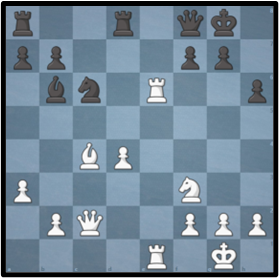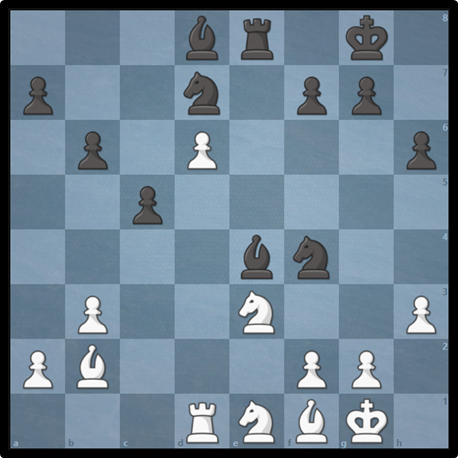The UTD chess team secured No. 2 at the 2024 Pan-American Intercollegiate Team Championship and will move on to the Final Four College Chess Championship in mid-spring. In addition, the UTD chess club received No. 3 overall in the U1800 section.
UTD Chess competed in the Pan-Ams from Jan. 4-7 in McAllen, Texas, sending five teams to the tournament. Two teams – Team A and Team B – had players from the UTD Chess team, and three teams – D, E and F – had players from the UTD reserve team and chess club members. Team A finished in second place and Team B in sixth place. Chess coach Julio Sadorra said that the chemistry of Teams A and B helped them defeat their top rivals, the University of St. Louis and the University of Texas Rio Grande Valley. Team E finished in third place in the U1800 section, and teams D and F finished sixth and 18th, respectively. Additionally, graduate student Andrei Macovei and sophomore Karolis Juksta received individual prizes of top boards No. 2 and No. 4.
UTD Team A consisted of freshmen Koustav Chatterjee and Anastasia Paramzina, graduate students David Brodsky and Brian Ramirez Escalante and sophomores Karolis Juksta and Saksham Rautela.They won four matches and drew two, bringing them to a total score of five out of six points.
“They left nothing to tie breaks and they got the job done,” Sadorra said. “They neutralized all boards 1, 2 and 3, and then we scored on the fourth board. And the MVP of team A is international master Karolis Juksta.”
Taking part in the tournament for the second time, Juksta received five out of six points, the highest among all board 4 players in the tournament. Juksta said he felt his efforts had paid off with this individual achievement. He said he appreciated the contributions of new team members, who helped them qualify for the final four.
“I would say we got great new players, so they are [a] big addition to our teams …We were supporting each other even after losses, and I think that [having new players] was good for getting such a high place,” Juksta said.
Juksta’s favorite game was against international master Shawn Rodrigue-Lemieux from UTRGV, which he said was quick as he didn’t spend much time thinking during the match. This win encouraged Juksta after the previous round, where he lost to candidate master David Zhurbinsky from Webster University.
“I basically won the game without putting [in] much effort. He made a few mistakes very quickly, and then I just had to finish the game to win,” Juksta said. “I won [the] game without leaving him many chances.”
IM Juksta vs. IM Rodrigue-Lemieux
Previous Moves: 17. Rfe1 Bxe4 18. Rxe4 Qf8 19. Rxe6 Nc6
White (Juksta) to move. How can white gain an advantage?
Answer: 20. Rxc6
White’s rook takes knight. This pins Black’s pawn on f7, allowing White’s knight to turn up the pressure by moving to e5.
UTD Team B consisted of juniors Ivan Schitco and Rahul Peddi, graduate students Andrei Macovei and Tarini Goyal and sophomores Gergana Peycheva and Balaji Daggupati.They drew one match, lost one and won four, with a total score of 4.5 out of six points.
“Team B was really helpful in paving the way … Team B was the first to strike and dunked on one of the favorites, Saint Louis University,” Sadorra said. “And the MVP of Team B was Andrei Macovei.”
Taking part in the tournament for the second time, Macovei earned five out of six points, the highest among all board 2 players in the tournament. Despite what Macovei called a strong team chemistry, they failed to qualify for the final four after losing to stronger universities.
“I think our team played very strong teams, like we played [University of] Missouri, Webster B, UTRGV B. We actually faced a lot of top GMs,” Macovei said.
In the U1800 section, UTD Team E consisted of graduate students William Barrett Winchell and Nikhilesh Prabhakar and sophomores Louis-Alexandre Calvary and Benjamin Jeffery. They won three matches and drew three, making their total score of 4.5 out of six points.
“They fought hard, too,” Sadorra said. “It was rewarding in the last round when Team E had a clutch win as well.”
Jeffery, president of the UTD Chess Club, said he was happy with the big improvement from last year’s tournament.
“There’s no way that we could have placed third without the other teams chipping in and there’s a lot of communication between all three of the teams and we were helping each other with preparation and all that kind of stuff,” Jeffery said.
Prabhakar played in the Pan-Ams for the first time and said that Jeffery and Calvary have both improved since last year in this tournament. Calvary jumped in rating from 1200 to 1900, Prabhakar said.
Jeffery said his best game was in round 3 against James Rhoads, the chess coach from Shippensburg University. Jeffery prepared and played the Sicilian defense Snyder variation with the white pieces. At first, Jeffery felt like he was struggling, but he managed to take advantage of the position and win the game.
“He’s actually a coach, so it’s always nice to beat people when you’re not the favorite, especially surprising them with something that they’ve never seen before,” Jeffery said.
Jeffery vs. Rhoads
Previous Moves: 22. Ne3 Be4
White (Jeffery) to move. How can White attack two of Black’s pieces at the same time?
Answer: 23. Bb5
Prabhakar considered Indiana University their toughest opponent due to the higher rated players on boards 1 and 2. As the final player of four to finish the match, Prabhakar said he felt pressured to secure a victory. Prabhakar won his game, and UTD Team E drew with Indiana University Team A thanks to what Prabhakar called mind games.
“[So] I was trying to show some sort of dominance by staring at my opponent’s face like playing over the board and trying to get him on edge,” Prabhakar said. “It definitely [worked] because he started spending 25 minutes on a single move.”
Sadorra said it was a very decisive moment in the tournament from all the teams, and they performed well on that day.
“I believe that the players deserved it,” Sadorra said. “It’s encouraging that we were able to adjust from the past team competitions last year and see that oh, we’re hitting.”
Sadorra said he is looking forward to Team A playing in the final four at the President’s Cup. In the future, Sadorra would like to keep their current team roster, as he feels like they are on the right track.
“We are hitting something golden here, so we’re going to keep on [going],” Sadorra said.


Leave a Reply